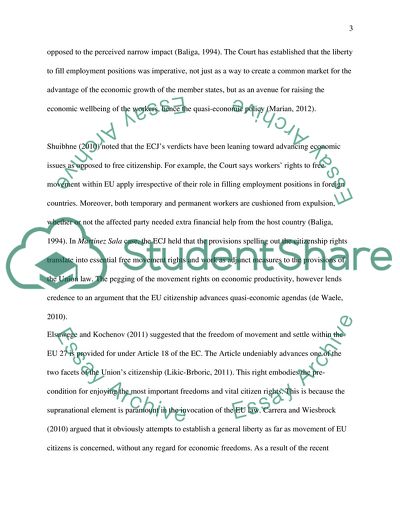Cite this document
(Importance of the EU Citizenship Law Research Paper, n.d.)
Importance of the EU Citizenship Law Research Paper. Retrieved from https://studentshare.org/law/1800338-the-eu-citizenship-right-to-free-movement-and-residence-is-subject-to-conditions-citizens-must-either-be-economically-active-or-they-must-be-economically-independent-of-the-state-in-which-they-live-those-who-are-not-economically-active-must-also
Importance of the EU Citizenship Law Research Paper. Retrieved from https://studentshare.org/law/1800338-the-eu-citizenship-right-to-free-movement-and-residence-is-subject-to-conditions-citizens-must-either-be-economically-active-or-they-must-be-economically-independent-of-the-state-in-which-they-live-those-who-are-not-economically-active-must-also
(Importance of the EU Citizenship Law Research Paper)
Importance of the EU Citizenship Law Research Paper. https://studentshare.org/law/1800338-the-eu-citizenship-right-to-free-movement-and-residence-is-subject-to-conditions-citizens-must-either-be-economically-active-or-they-must-be-economically-independent-of-the-state-in-which-they-live-those-who-are-not-economically-active-must-also.
Importance of the EU Citizenship Law Research Paper. https://studentshare.org/law/1800338-the-eu-citizenship-right-to-free-movement-and-residence-is-subject-to-conditions-citizens-must-either-be-economically-active-or-they-must-be-economically-independent-of-the-state-in-which-they-live-those-who-are-not-economically-active-must-also.
“Importance of the EU Citizenship Law Research Paper”, n.d. https://studentshare.org/law/1800338-the-eu-citizenship-right-to-free-movement-and-residence-is-subject-to-conditions-citizens-must-either-be-economically-active-or-they-must-be-economically-independent-of-the-state-in-which-they-live-those-who-are-not-economically-active-must-also.


